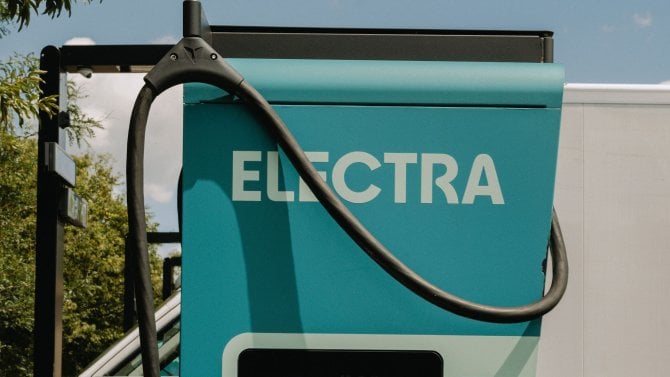...
By Marcin Grajewski and Niclas Mika
BRUSSELS, June 22 (Reuters) - Hopes grew for a breakthrough in negotiations for a new treaty to reform the European Union on Friday as Germany, France and Poland thrashed out a possible compromise involving the core problem of voting rights.
In the first success of their two-day summit, EU leaders reached a broad agreement on creating a new, single post to run the 27-nation bloc's foreign affairs.
But talks proved more difficult on a deal to overhaul the EU's rickety institutions. Poland held out against a planned re-weighting of voting rights which it says would favour Germany at its expense, and Britain stood its ground on other issues.
"We've never been so close to an agreement, or to a disagreement," David Martinon, a spokesman for French President Nicolas Sarkozy, told reporters on the summit's second day.
German Chancellor Angela Merkel, hosting the summit at the end of Germany's presidency of the Union, wants a deal on a treaty to replace the EU constitution rejected by French and Dutch voters and help it face challenges such as global warming.
Critics fear a dilution of national sovereignty.
Merkel met Polish President Lech Kaczynski three times in 12 hours to try to break the impasse and the negotiations were expected to stretch into Friday night.
EU leaders were shocked by Poland's repeated references to its suffering at the hands of Nazi Germany during World War Two to justify its opposition to the voting system. It says it would have a larger population were it not for heavy wartime losses.
Poland said there was no deal yet on the central dispute over the voting system but Warsaw was about to put its own "last-chance" proposal to the German EU presidency and France.
"There is no agreement. We are going into another multilateral meeting with the French and the Germans. Our proposal is a last-chance proposal," a Polish official said.
POSSIBLE COMPROMISE
Under the possible compromise, Poland would accept a lower voting weight within the EU for compensation in other areas.
The new voting rules would be introduced in 2014, instead of 2009 as originally planned, and give countries that fall just short of a blocking minority on controversial issues the chance to force further negotiations.
Warsaw would also be given guarantees that the rest of the bloc would back it in the event of future energy crises, a concern of Poland which neighbours gas and oil exporter Russia.
"If this proposal were to meet with the Poles' approval, it goes without saying that France and Germany would do everything to obtain the agreement of all member states as of today," Sarkozy's spokesman said.
Earlier on Friday, the EU leaders agreed on the job title, role and powers of a High Representative of the EU for foreign policy, defence and security, diplomats said.
The post will combine the jobs of foreign policy chief Javier Solana, who does mostly crisis management, and External Relations Commissioner Benita Ferrero-Waldner, who controls the executive European Commission's aid budget.
The new foreign policy chief would chair meetings of EU foreign ministers and head a combined external action service drawing on both national and EU diplomats, after Britain dropped its reservations on those points, the diplomats said.
British Prime Minister Tony Blair ssaid he also saw progress on other areas of the treaty that London opposes.
Britain does not want to be legally bound by a Charter of Fundamental Rights, which includes a broadly defined right to strike, is seeking an opt-out from EU justice cooperation and opposes obligatory social security payments to migrants.
Failure at the summit could prompt a small group of states to press ahead with closer integration, leaving others behind, and make richer west European countries more reluctant to aid poorer newcomers.
Nearly all the EU states favour a "double majority" voting formula requiring 55 percent of member states representing 65 percent of the EU population to pass decisions.
Poland has proposed an alternative under which voting power would be based on the square root of each country's population. This would favour smaller states rather than larger ones.
Eighteen EU nations ratified the constitutional treaty, but even they accept it must be cut to allow France, the Netherlands and Britain to avoid referendums their governments might lose.
Yet some key institutional changes are set to be kept, such as creating a president of the European Council of governments elected for 2-1/2 years instead of the current six-month rotating presidency which has grown unwieldy in the enlarged EU.
Keywords: EU TREATY/




 Electra dorazila do Česka a tentokrát to není ta Baťova. Hlavní roli hrají elektromobily
Electra dorazila do Česka a tentokrát to není ta Baťova. Hlavní roli hrají elektromobily
 Svatý grál ctitelů supersportů: Lamborghini Miura slaví 60 let
Svatý grál ctitelů supersportů: Lamborghini Miura slaví 60 let
 Dobrá zpráva pro důchodce. Od příštího roku mohou jezdit bez papíru
Dobrá zpráva pro důchodce. Od příštího roku mohou jezdit bez papíru
 Test Mitsubishi Outlander PHEV 4×4 Intense (2025): Čekání se vyplatilo
Test Mitsubishi Outlander PHEV 4×4 Intense (2025): Čekání se vyplatilo
 Dacia Bigster, o které pořád sní spousta českých zákazníků, se vyrábí. S dieselem stojí zhruba 600 tisíc, ale je tu problém
Dacia Bigster, o které pořád sní spousta českých zákazníků, se vyrábí. S dieselem stojí zhruba 600 tisíc, ale je tu problém
